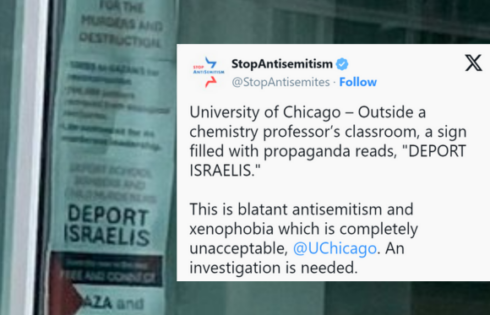
More could be coming; focus group meets to identify ‘harmful’ content
Princeton University soon may add more trigger warnings to its library archives after a focus group met to identify content that “marginalized communities” may find “harmful” or “offensive.”
In late January, library archivists hosted a focus group study about “harmful content” within the Princeton University Library’s online archives, according to a Jan. 16 post on the university’s Special Collections blog.
“As part of inclusive and reparative description efforts, archival staff in Special Collections have recently begun to implement harmful content mediation features as a way to mitigate harm for researchers, particularly those from marginalized communities, who encounter damaging, injurious, or otherwise hurtful description and/or collection content,” the post states.
Their group study aimed to listen and understand students’ thoughts about “harmful content” and the way that the library handles it, according to the blog.
“In particular, we are interested in hearing from those who identify as member(s) of marginalized communities as well as those who are interested in archives, archival research, and social justice,” the post states.
The researchers said they hope the study will help the library be more effective in moderating its archives for content that may hurt or offend people.
The Princeton Library has included content, or trigger, warnings on materials at least since 2022, according to its website.
One example of a warning appears on archived photographs of a bus burning incident in 1961 in Anniston, Alabama. The photos are previewed with the message: “Content warning: Photos/materials depict scenes of anti-Black racially-motivated violence.”
The library website also asks individuals to notify staff if they find “problematic language” in materials, because “terminology evolves over time” and “efforts to create respectful and inclusive descriptions must be ongoing.”
Michael Hotchkiss, assistant vice president for communications at Princeton, told National Review last month that the content warnings are there to help people.
“The Library does ongoing work to ensure that catalog information and finding aids created by Library staff are accurate and do not contain offensive language,” Hotchkiss said. “Any content warnings do not restrict or limit access to Library materials. These efforts encourage and support wide use of the Library’s collections to advance knowledge and make information more discoverable for researchers.”
Trigger warnings have become commonplace at many universities in recent years. Advisories about potentially troubling content have appeared on everything from course descriptions and campus crime alerts to popular novels like “Harry Potter and the Philosopher’s Stone” and classic literature such as “1984” and “The Old Man and the Sea.”
In 2021, Brandeis University’s Prevention, Advocacy and Resource Center even considered the term “trigger warning” to be problematic because “the word ‘trigger’ has connections to guns,” The College Fix reported. The center suggested the phrase “content note” be used in its place.
However, a 2019 study by Harvard University researchers found “no evidence-based reason” to use trigger warnings, The Fix reported.
MORE: UNLV law school apologizes for using word ‘picnic,’ changes to ‘lunch’
IMAGE: InakidelOlmo/Unsplash72
Like The College Fix on Facebook / Follow us on Twitter







Please join the conversation about our stories on Facebook, Twitter, Instagram, Reddit, MeWe, Rumble, Gab, Minds and Gettr.